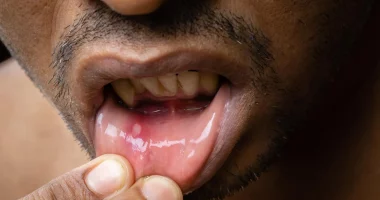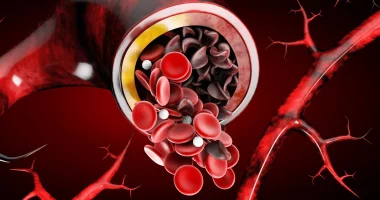Ascariasis happens when a specific kind of roundworm, called Ascaris lumbricoides, gets into your small intestine and causes trouble. It makes your stomach hurt, makes you vomit, and takes away your hunger.
Ascariasis is a typical infection, especially in places where sanitation isn’t very good, like many developing countries. It’s caused by a type of roundworm also called Ascaris lumbricoides. These worms get into an individual’s small intestine and live off the food and nutrients there, which isn’t very nice for the person hosting them
Ascaris lumbricoides is one of a group of parasites called soil-transmitted helminths. This means they’re passed from one person to another through soil contaminated with feces, where the worm eggs live. When someone infected poops, the eggs come out with it. If they poop near farmland or crops and those crops aren’t cleaned or cooked well, the eggs can stick to the food. When someone eats that food, they can get infected too, starting the cycle over again.
The tricky thing about ascariasis is that a lot of people don’t feel sick right away. It can take a while for symptoms like belly pain, vomiting, and loss of appetite to show up, and by then, the infection might be pretty serious.
Symptoms
Symptoms of ascariasis might not show up right away. At first, someone might not even feel sick. But as the number of worms in the small intestine develops, symptoms can start to appear. These symptoms include pain in the lower stomach or discomfort, lack of hunger sensation, seeing worms in the feces, vomiting, poor nutrition in children, losing weight, nausea, diarrhea, and irregular bowel syndrome.
As the infestation gets more serious, the worms may go to the lungs. Once this happens, a person might start to experience different symptoms like fever, chest discomfort, a cough that makes them feel like they’re gagging, coughing up mucus with blood in it, having trouble breathing, and making wheezing sounds. These symptoms indicate that the infection has become more severe.
In very rare cases, ascariasis can lead to a problem called aspiration pneumonia, where someone breathes foreign material like vomit or saliva into their lungs, causing an infection.
Causes
The main cause of ascariasis is feces. If someone who has the infection poops near where food grows or where water comes from, like a farm field or a well, the poop can contaminate the area. Even using poop as fertilizer for crops without treating it properly can spread the worms.
People can get ascariasis by eating or drinking things that have been contaminated by poop. This is especially likely if they don’t wash their food and their hands well before eating or preparing food.
Kids can also get the worms by playing in dirt or with plants and then keeping their hands in their mouths without washing them first.
Risk factors
Roundworms are found all over the world, but they really like warm places, like subtropical and tropical areas, the best. They’re more common in areas where things like toilets and clean water aren’t as easy to find.
In the United States, ascariasis isn’t very common, so the chances of getting it from the environment are pretty low.
But in places where ascariasis happens more often, like those warm areas we talked about, certain things can make it more likely for someone to get infected. These include being around dirt that’s contaminated with poop, living or visiting places where the worms are common, not having good toilets or clean water, not getting rid of poop properly, and using poop as fertilizer for crops without making sure it’s safe first.
Diagnosis
To figure out if someone has roundworms, doctors usually ask for a sample of their poop. Then, they look at it under a microscope to see if they can find any eggs from the worms.
But sometimes, especially if the infection is new, it’s hard for the doctor to find those eggs in the poop.
If the doctor suspects roundworms but can’t find them in the poop, they might use different tests to try to see what’s going on inside the person’s body. These tests can show if there are a lot of worms and where they are.
Some of these tests include:
- Using a tiny camera called an endoscope to look inside the person’s gut.
- Doing scans like CT scans, MRIs, or ultrasounds to take pictures of the inside of the body.
- Taking X-rays to see if they can spot any worms.
Treatment
When someone has ascariasis, the doctor usually gives them special drugs to kill the worms. If the infection is really bad, the doctor might need to do more than just give medicine.
The goal of treatment isn’t always to get rid of every single worm, but to make the person feel better by getting rid of a lot of them and their eggs.
In some cases, especially if there are a lot of worms or they’re causing a big problem, the doctor might recommend surgery. This is when they open up the person’s body and take out the worms by hand. Surgery can also help if the worms are blocking part of the gut and causing trouble.
Complications
When someone has ascariasis, the doctor usually gives them special drugs to kill the worms. If the infection is really bad, the doctor might need to do more than just give medicine.
The goal of treatment isn’t always to get rid of every single worm, but to make the person feel better by getting rid of a lot of them and their eggs.
In some cases, especially if there are a lot of worms or they’re causing a big problem, the doctor might recommend surgery. This is when they open up the person’s body and take out the worms by hand. Surgery can also help if the worms are blocking part of the gut and causing trouble.
Prevention
If you live in a place where things like toilets and clean water are easy to find, you probably don’t have to worry much about getting ascariasis. But it’s still important to do some things to keep yourself safe.
Make sure to wash your food really well before you eat it, and wash your hands after you go to the bathroom. It’s also a good idea to clean any dishes or cooking stuff you use every time you use them.
If you’re going to visit a place where they don’t have good toilets or clean water, there are some extra things you can do to help keep yourself from getting infected:
- Check where they prepare food to make sure it looks clean.
- Always boil or filter water before you drink it.
- Wash your hands with soap and hot water before you touch any food.
- Try not to use public baths or places to wash up if they look dirty.
- If you’re going to eat fruits or veggies, make sure to peel them or cook them really well, especially if they were grown in a place that’s not very clean.
- And if you’re with kids, make sure they wash their hands with soap and water after they’ve been playing outside.
Outlook
The future for someone with ascariasis can be good if they are taken care of. They can avoid getting infected by being careful with their food, using clean toilets, and not going to places where lots of people have it.
Sometimes, people don’t know they have ascariasis until it’s really bad. But once the doctor figures out what’s going on, they can usually help the person get better with medicine or sometimes with surgery. After treatment, most people feel much better and can go back to normal.
Summary
Ascariasis is caused by roundworms that can infect the intestines, often in places with poor sanitation. Symptoms include abdominal pain and vomiting. Diagnosis involves stool samples and imaging tests. Treatment typically involves antiparasitic drugs, with surgery for severe cases.
Complications can include intestinal blockages and stunted growth in children. Prevention includes proper food hygiene, sanitation, and avoiding contaminated areas. Overall, with early detection and treatment, most people can recover fully from ascariasis.









